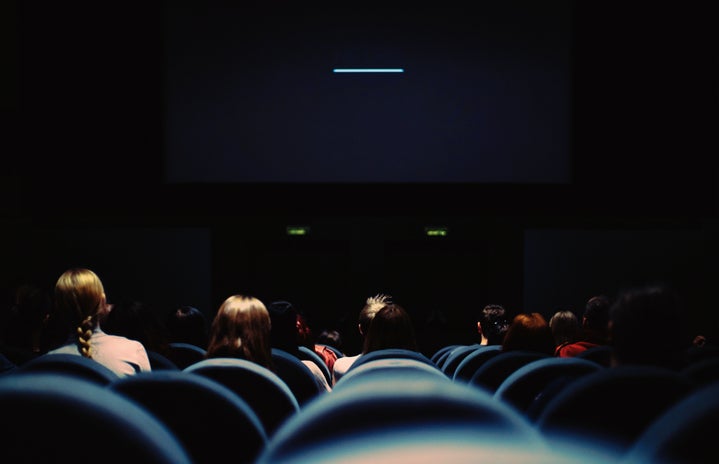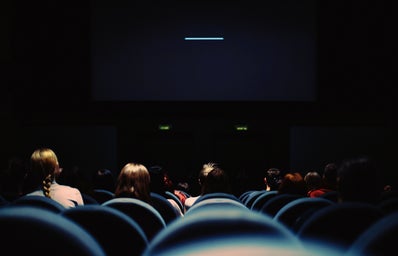To emulate the feeling of being in a theater, I turn off my fluorescent lights, turn on the AC, and scour pirating websites on my MacBook until I find one with the highest resolution and the least ads. Whether popcorn elevates the movie-watching experience is debatable, but I occasionally snack on chocolate bars or potato chips. I get comfortable as I immerse myself into another world, preparing to invest in the lives of fictional strangers for an hour or two and introspect after the credits roll. As Nicole Kidman says, we come to the cinema for magic – and when I can’t physically be at the cinema, I recreate that magic right where I am.
It’s not hard when most of the magic lies in the art: the “dazzling images” and “sound that I can feel” in my chest. Soul-shattering, goosebump-inducing melodramas and silly, lighthearted comedies alike add immense value to my life. Aspiring Hollywood workers are not the only audience who can benefit intellectually from watching movies. Signing into Netflix (or Soap2Day, in my case) can improve anyone’s critical thinking and interpersonal relationships.
Whodunits like Clue (1985) and Knives Out (2019) help viewers exercise logical reasoning and observational skills – I’m sure at least one person out there decided that they wanted to be a detective after watching a murder mystery. Or take Legally Blonde (2001), which raised an entire generation of women lawyers. Foreign docudramas and biopics expose us to different cultures and lifestyles, expanding social awareness. Romance movies teach teenagers and young adults what qualities to look for in a partner. Tragedies like A Walk to Remember (2002) and Me Before You (2016) remind us not to take loved ones for granted. Everything Everywhere All at Once (2022) can help mothers like Evelyn Wang understand daughters like Joy Wang and vice versa. Through film, we learn to better navigate the world and ourselves.
Sometimes, the unexpected happens. Frankly, I read Romeo and Juliet once in ninth grade and never thought about Shakespeare again. Yet, only two months into my current Shakespearean film class, I feel inclined to pick up The Comedy of Errors and As You Like It. Movies like Kenneth Branagh’s Much Ado About Nothing (1993) and Baz Luhrmann’s Romeo and Juliet (1996) have familiarized me with Early Modern English and the Elizabethan era, making classic literature less daunting. Now I recognize how Shakespeare’s work influences contemporary media and still resonates with people today.
Remember when you had to write a rhetorical analysis essay for the AP Lang exam? That’s what I do in my head when I play a movie. Costume choices, color grading, camera angles, music, and thematic symbolism – each choice is a product of compromise between artistic visions. Film is intentional and, for that reason, never useless. Behind every on-screen story are multiple real-life stories. Begin asking yourself, “What is the author’s purpose? How does the director want me to feel? The cinematographer? The makeup artist?”
So much love and labor goes into filmmaking; all genres have something to offer. Like going to an art museum, an opera house, or a Broadway musical, watching a movie is a valuable form of self-entertainment. Even if you aren’t consciously analyzing how a character’s color palette reflects their personality or how specific editing techniques convey distinct emotions, you are bound to leave the experience with newfound insight. Once I began appreciating film on a deeper level, I accepted this activity as one of my hobbies. But, in our digital age, many people hesitate to call movie-watching a hobby.
Due to the rise of online social platforms, exposure to film has become conflated with mindless media consumption. Constant browsing can cause overstimulation, desensitization, and procrastination – most know that being terminally online detriments our health. Yet, we continue to reach for our phones first thing in the morning. We tend to project this cognitive dissonance about social media onto all media, taking for granted the crafts of these artists.
The term “media consumption” belittles creatives like directors and cinematographers, making film seem soulless when it is anything but. Cinema has often been dismissed as another source of brain rot, oversimplifying its profound influence on culture. Those who consider watching movies a waste of time equate an engaging educational experience to chronic scrolling. While I have admittedly gained meaningful knowledge from apps like TikTok, I have spent more hours skipping through posts to put off school assignments. Designed for addiction, the endless realm of social media triggers dopamine releases and caters to our already declining attention spans. We end up relying on excessive internet use for pleasure. But watching movies (even the “bad” ones) is never a waste of time because they all have something to teach us, and they do so without causing psychological dependence.
I, however, am obsessed with movies – if I’m not watching one, I’m thinking about it, and if I’m not thinking about it, I’m likely asleep. I splurge on AMC tickets, put up with annoying pop-ups on streaming sites (maybe one day I’ll invest in an ad blocker), and add every film someone mentions in casual conversation to my Letterboxd watchlist. I have bonded with friends over cinema, experimented with fashion to embody my favorite characters, and cried at the mention of my mother’s homeland in Taste of Cherry (1997). I laugh, I cry, I care. That is not media consumption. That is living.


